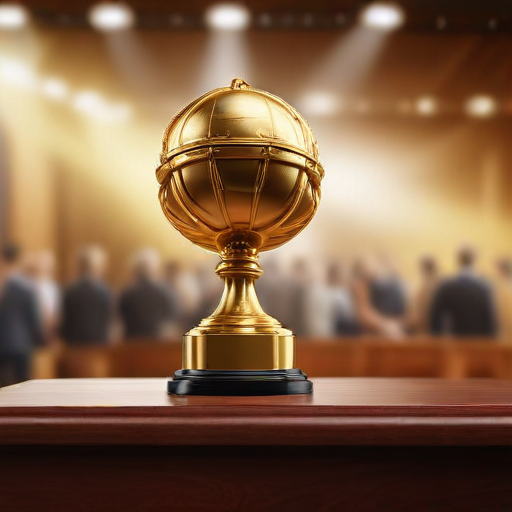The recent Golden Globe Awards, held on Sunday night, saw familiar names taking home the top honors, with “Shōgun” and “Hacks” receiving accolades in the television categories. The film “The Brutalist” and “Emilia Pérez” emerged victorious in the movie categories, while Nikki Glaser hosted the event, following a notably low bar set by last year’s host, Jo Koy. However, one particular win has sparked debate among fans and critics: Jeremy Allen White’s Best Actor award for his role in “The Bear.”
While White’s triumph marks his third consecutive win, and he has collected a plethora of awards, including two Emmys, this year’s award has drawn criticism due to perceived flaws in “The Bear” Season 3. Critics argue that White’s performance lacked the energy and depth necessary to stand out, suggesting that the voting body may have favored familiarity over merit in their choices.
In contrast, many feel that Adam Brody deserved the accolade for his enchanting portrayal in Netflix’s “Nobody Wants This.” His character, the affable and witty Noah “Hot Rabbi” Roklov, resonated with audiences, showcasing a delightful chemistry with co-star Kristen Bell. Brody’s two-decade career has endeared him to many, and critics argue that his exquisite performance should have earned him the coveted award instead of White’s less impactful showing.
Other nominees such as Ted Danson, Jason Segel, and Steve Martin also delivered remarkable portrayals worthy of recognition. The diversity in their performances highlights the range of talent present during the awards, further raising questions about the decisions made by the voting body.
The ongoing conversation about the Golden Globe winners underscores the ongoing evolution of the awards and how they respond to audience sentiments. While some disappointment lingers over White’s win, it is crucial to acknowledge the impressive performances that continue to enrich the landscape of television and film.
Overall, this year’s Golden Globes showcased a mix of returning champions and fresh talent, sparking debates that encourage viewers to engage with the dynamic nature of artistic recognition. As the industry continues to evolve, so too will the narratives surrounding these award shows, keeping fans invested and excited for future ceremonies.
